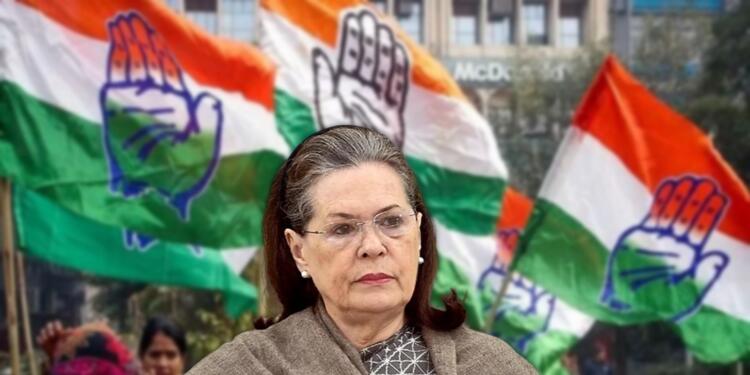Congress leader Sonia Gandhi’s opinion piece, in which she accused the Indian government of “surrendering values” by staying silent on the ongoing Israel-Iran conflict, has stirred fresh political debate. Framed as a moral call for justice and peace, her article goes beyond foreign policy—it reveals a familiar pattern in Congress’s political playbook: turning international conflicts into domestic political currency, particularly to appeal to its core Muslim vote base.
Congress and Selective Sympathy
Sonia Gandhi’s article expressed deep concern over the suffering in Gaza, referring to it as an “open-air prison” and condemning civilian deaths. While humanitarian appeals should be welcomed in any democracy, the timing and tone of this intervention raise questions.
For one, this isn’t the first time Congress leaders have vocalized strong opinions about global conflicts involving Muslim populations. Palestine, Iran, and even the Rohingya issue have often seen vocal support from the Congress camp—yet similar empathy is rarely extended to victims of Islamist violence, such as Hindus in Kashmir or civilians caught in cross-border terror attacks. This selective outrage suggests a pattern not of global moralism, but targeted political signaling.
Congress leader Priyanka Gandhi Vadra had also recently taken to social media to express outrage over the civilian deaths in Gaza, particularly those of children, calling it a “horrific crime against humanity.” While Gandhi’s statement was seen by some as a display of humanitarian concern, it has also drawn sharp criticism — especially for what many view as a pattern of selective empathy.
Why Now? A Domestic Audience for an International Message
It’s no coincidence that such statements often emerge ahead of elections or during moments of domestic political turbulence. With the Lok Sabha elections around the corner, the Congress party appears to be reviving its old tactic of appealing to Muslim voters through emotionally charged international narratives.
By criticizing the Narendra Modi government for being too close to Israel, Sonia Gandhi positions Congress as the more “sympathetic” option for Indian Muslims, while casting the BJP as indifferent to Muslim suffering abroad. But this messaging has less to do with actual foreign policy and more with domestic vote calculations. Don’t forget that the Bihar Assembly elections are just around the corner.
Congress’s Inconsistent Foreign Policy Positions
Historically, India has maintained a delicate balance in the Middle East—supporting a two-state solution in Palestine while strengthening ties with Israel on defence and innovation. Congress itself followed this line for decades while in power. Today, the same party criticizes those policies when out of office, simply because they no longer serve their political narrative.
It’s also worth noting that while Sonia Gandhi condemns Israeli airstrikes, there’s complete silence on attacks carried out by groups like Hamas or Hezbollah—organisations known for targeting civilians. This one-sided outrage weakens the credibility of any moral argument and instead exposes ideological bias.
Global Rhetoric, Local Politics
Sonia Gandhi’s article may be framed as a defense of universal values, but it fits a well-known Congress pattern: invoking selective empathy to protect and grow its domestic vote bank. Foreign policy should be guided by national interest and consistency—not vote calculations.
At a time when India is trying to navigate complex global alliances while maintaining its strategic autonomy, using global conflicts for domestic political gain only undermines the country’s credibility abroad and polarizes debate at home.





























